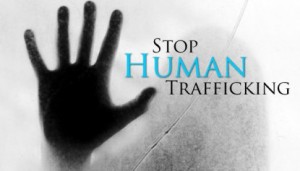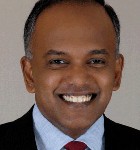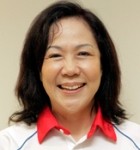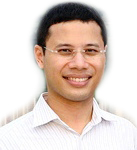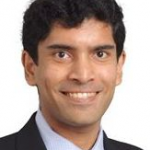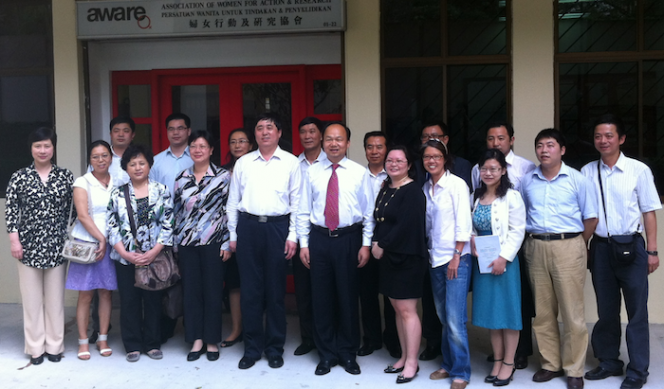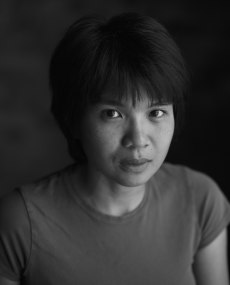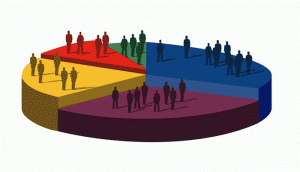The following are some of our submitted recommendations. Read our full report here.
Produce an annual self-assessment report of Singapore’s efforts to combat TIP
This report should use international indicators on trafficking, so that Singapore’s national report will stand up to international scrutiny as a fair and balanced report.
Enhance data collection, statistical reporting and monitoring of TIP offences through developing of dashboard
- This is fundamental for developing indicators, reporting mechanisms and documentation.
- This portal of information should be made transparent, and data should be disaggregated by various indicators useful for prevention work.
Request for funding of TIP initiatives
- AWARE proposes that the State set up a compensatory trust fund to aid victims of trafficking.
- As trafficking is a cross-cutting issues which intersects both vertically and horizontally on other areas, it is best if each Ministry allocates at least 0.5 percent of its Total Budget to the trafficking cause for the next five years.
- AWARE also proposes that the inter-agency task force on TIP be developed into a fully-functioning unit in due course.
- Many needs will require funding from the Government if an effective National Action Plan on TIP is to be set up. These include supporting the direct service work of NGOs, to enhance trans-border collaborations, for intensive capacity building of many stakeholders, to conduct research and invest in rehabilitation schemes.
- At the ASEAN level, State should initiate an ASEAN initiate towards trafficking. This can include the sharing of information on trafficking cases, especially to combat trafficking syndicates.
Study feasibility of accession to UN Palermo Protocol on TIP
- AWARE urges the Government to play a bigger role, internationally, by ratifying the Palermo Protocol in its entirety.
- We advocate for a committee – comprising lawyers from the AGC, private practice and NGOs – to be formed to review all laws that have some bearing on trafficking issues and to study how other countries amended existing laws to be in compliance with the Palermo Protocol.
Define sex and labour trafficking offences and indicators
- AWARE is of the view that the definition of Trafficking as set out in the Palermo United Nations Protocol to Prevent, Suppress and Punish Trafficking in Persons (2000) should be wholly adopted by the Singapore Government in any legislation adopted in his country. This definition as stated at Article 3 of the Protocol is as follows:
“Trafficking in persons” shall mean the recruitment, transportation, transfer, harbouring or receipt of persons, by means of the threat or use of force or other forms of coercion, of abduction, of fraud, of deception, of the abuse of power or of a position of vulnerability or of the giving or receiving of payments or benefits to achieve the consent of a person having control over another person, for the purpose of exploitation. Exploitation shall include, at a minimum, the exploitation of the prostitution of others or other forms of sexual exploitation, forced labour or services, slavery or practices similar to slavery, servitude or the removal of organs…”
Embark on comprehensive training curriculum for Government officials
- This training is crucial and must be provided on a regular basis and continue indefinitely on an updated basis. We urge that the training programmes include gender, class, and the dynamics of the power relation between traffickers and victims.
- AWARE suggests that this training be provided for all government and non-government officials, including front-line officers across all departments; social workers; health workers; police; immigration officials; court officials; airline carriers; corporate members of the transport industries; media personnel; and airport staff.
- AWARE envisages that such training should be specifically provided to foreign workers. This could be achieved by inserting a component on labour and sex trafficking in orientation workshops.
Conduct joint research studies
- A commissioned study to investigate the management of front-line immigration services would be highly beneficial.
- Research with other countries would be of considerable value, especially in the areas of training to identify good programmes and the efficacy of victim assistance programmes by various agencies.
- Inter-governmental knowledge-sharing can be utilised particularly for the prevention of labour and sex trafficking purposes. For example, inter-departmental research could be undertaken into cross-border match-making agencies, re-entry schemes, and the interviewing mechanisms of victims.
Conduct TIP campaigns
- Campaigns should be directed towards the education of trafficking issues, including detection, for members of the general public. Campaigns should work towards dissipating a culture of blame against victims of trafficking.
Strengthen case referral mechanism for potential victims and members of public
- Trafficking is a trans-border issue. Case referral mechanisms will need to include an intelligence system that operates at both regional (ASEAN) and international levels. Such an intelligence system will function as an early detection system of potential TIP cases.
- A well-coordinated, robust, tried and tested inter-government referral system should also include NGOs.
- Education is key in a system of early detection and this should be directed at members of the general public, students, and workers in specific industries where there are higher chances of persons being trafficked, such as the construction and entertainment industries.
Set up TIP national hotline
- The training of the front-line staff is crucial for this, as their role would be to empathise and be also the early detectors.
- We ask that this hotline be toll-free and widely advertised in Singapore and in neighbouring countries.
- Without accepting the Palermo Protocol’s definition on trafficking as the principle on which to develop investigation processes across various ministries, any effort to strengthen investigation and prosecution processes will fall short as syndicates can easily remain free of prosecution.
- There needs to be robust monitoring of all crime syndicates, recruiters and other guises for trafficking such as matchmaking agencies and labour recruitment agencies in Singapore and their counterparts in other countries.
- Any investigation process can be subverted if there is no immunity programme to support the victim for her/his cooperation with investigations.
- AWARE also urges that investigation processes can cover reduced prosecution charges if any accused person can cooperate well enough resulting in syndicate leaders and others further up the supply chain being caught for trafficking offences.
- AWARE believes in the next five years it is important for police officers, immigration officers and NGOs to have constant dialogues in a safe environment of sharing and monitoring cases to seek systemic improvements in the following key areas – case management, case investigation, case prosecution, case protection for witness, case re-integration.
Fast track TIP cases
- We presume that the fast tracking relates to both expediting prosecution before the courts and urgent investigation of TIP cases in order to bring sufficient charges against a trafficker or a person in the trafficking chain. AWARE agrees with this approach for the following reasons:
- The longer it takes to investigate, the harder it will to locate trafficker and those in the trafficking chain, since the traffickers will have begun to take precautions following the escape of the victim.
- Accelerated efforts in advancing prosecution means that the victim does not have to contend with the stresses and anxiety of a long prosecution.
- AWARE asks for additional resources to be set up specialized enforcement teams for sex and labour trafficking. It is also important to establish meaningful liaisons with the NGO community.
- For processes to be efficient and sensitive, prosecutors and judges must be appropriately trained to avoid delays and unnecessary adjournments and to list the case in priority to other cases.
Set up specialized enforcement teams for sex and labour trafficking
- There should be specially trained dedicated and cross-sectorial enforcement teams for sex and labour trafficking who are appropriately trained to investigate all possible fronts for trafficking ( including syndicates which operate under the guise of matchmaking agencies and maid recruitment agencies). This will lead to speedier intelligence gathering and prosecution.
Study setting up of joint databases across enforcement agencies
- Such a database should be used to generate meaningful and investigative research, and to link up with databases in other countries, in concerted investigative efforts of tracking syndicates.
Review legislations related to TIP
- For the Palermo Protocol to be ratified, there are many local laws that need amendments. These include the Immigration Act, Women’s Charter, Penal Code, Children and Young Persons Act, Employment of Foreign Manpower Act, Employment Act and others.
- We urge for a thorough review of existing laws for coherence and ask for a standalone Anti-Trafficking Act to be put in place. We draw attention to the UN Model Law Document on TIP to be used as a benchmark as it is a thorough piece of legislation from which local anti-trafficking laws can be adapted for adoption.
- Cognizant of the challenges ahead in amending laws well enough for effective prosecution, AWARE would like to suggest that the accused can be charged cumulatively under the different Acts and bear the deterrent sentences consecutively.
- We would also like to see civil redress being incorporated into the standalone Anti-Trafficking Act or into the amended laws. This money can then be used to help victims re-enter their countries and/or for re-integration programmes.
- We would also like to see deterrent penalties for trafficking offences be substantially increased, in severity.
- AWARE would also like to see a provision to freeze assets of suspects as investigations are ongoing so that movement of assets is severely limited.
- The Judiciary and prosecution should be trained on the economic model of trafficking, the pathway that trafficked victims take and the threats against victims. Training with such background will go a long way to help the judiciary and the prosecution understand the nature of trafficking, both for migrant workers and trafficked persons, as defined by the Palermo Protocol.
- We also propose that the victim has access to compensatory relief from the perpetrator’s (trafficker’s) gains.
- AWARE would also like to see the recovery of wealth and fines from traffickers be used to bolster access to legal aid for the victims.
Train enforcement officers in victim identification management
- AWARE asks for consistency in the indicators to be used. These indicators must be used by all front-line officers whether they are from enforcement, immigration, social agencies. We highlight that there are plenty of materials on this subject and AWARE will be happy to be of help, if needed, in this area. Since the indicators have to evolve into a common set and be based on the definition of the Palermo Protocol it is imperative that all stakeholders are involved in a dialogue process to negotiate on the indicators.
- AWARE would also like to point out that a clear process based on an approach of being non-judgmental and compassionate towards victims need to be effected. This process must also lead into witness protection progamme where it applies in a manner that maintains the confidentiality of the victim, his/her narrative and the whereabouts.
- As this is a complex business AWARE would like to urge that there is transparency wherever possible, without putting into jeopardy the delicate nature of these investigations and the safety of the victims.
Enhance victim care services including medical care, counselling services and translation services
- Only when judgment is suspended and a greater sensitization is developed to the ‘push’ factors that bring many to our shores in hope, will there be seamlessness in the care programmes that we put in place between the Government and NGOs.
- AWARE asks for resource support for NGOs to help victims. We also ask that Government funding comes with reasonable and sensible KPIs that take into account time for reflection – a key component in the rehabilitation of traumatised victims.
- We also ask for government funds to be instituted to support victims in allowances for everyday living as they stay in the shelter and to sustain their families back home, if they turn into witnesses.
- We call upon the Government urgently to bring in specialists to train counsellors, social workers and specialist staff from a special team within the Government, to be trained in handing victims of trafficking to reduce as much as possible the re-entry into the trade as sex workers or to leave as embittered individuals when they have been so violated.
- AWARE asserts that the Witness Protection programme ought to offer opportunities for re-skilling of victims into new trades which will become a cost to the Government. We urge that the Government see this as a humanitarian gesture and our contribution to the global effort to prevent trafficking.
Facilitate re-entry and return of victims to home countries
- For effective re-entry to take place, Singapore needs to enter into bilateral arrangements with countries. NGOs can execute in facilitating the re-entry of a victim into the country of origin. This call for a comprehensive partnership is preventive as many victims re-enter the trade when their families are threatened over debts or when they are threatened again. An approach through Crime offices of two countries can at least increase the responsibility for law enforcement officers on the ground.
- A follow-up on the ‘returnee’ should be done once every six months over a course of two years, to track the pattern of re-integration and to check re-entry into countries of destination.
- We urge the Government to support NGOs that run longer term rehabilitation and re-integration programmes so that we, in Singapore, are known for re-building people’s lives as we also send them home.
Review adequacy of shelters for TIP victims
- We need to have a dedicated shelter for each type of victim under the Palermo Protocol – victims of sex trafficking, victims who were exploited as forced labour and yet another, in due course, for organ trafficking. Dedicated shelters means supporting resources with specialist skills, approaches that are rights-based and processes that emphasise the dignity of the victim.
- Adequate funding and resources are needed for the shelters, rehabilitation centres, crisis centres and also to fund regular workshops to deepen understanding on trafficking for service providers and Government officials.
- We also ask that guidelines be drawn up at State level in the following areas:
- maintaining the shelters as secular spaces – important as it is a multi-faith foreign community;
- maintaining a credible staff-victim ratio for impact work;
- maintaining a level of proficiency needed to be employed in shelter work of this nature
- As the Palermo Protocol is ratified, Singapore also needs to set up a dedicated Council that functions as a coordinating unit, a governance centre, a training centre and one that sets direction together with all the stakeholders on trafficking matters.
Review provisions of legal assistance
- There must a pool of dedicated and well-trained lawyers who will take up this work and be compensated for it to a certain extent. This can happen only when lawyers are incentivized to come into this field as a regular pool. Currently the same very small pool of lawyers is stretched in handling cases on a pro bono basis and it is not too fair on them.
- We assert that training programmes are needed for the lawyers and trafficking and legislative matters must become part of the curriculum at the law faculties of the two Universities – NUS and SMU.
Review access to work facilitation and training for victims
- There is potential for organisations and individuals in Singapore to conduct training in various skills for many of the women and men who have been trafficked.
- We urge that a database be formed with the help of NGOs to identify the kind of jobs that victims can return to and we conduct training at the rehabilitation facility to equip victims with those relevant skills.
Engage enforcement agencies of source countries for joint-investigation and sharing of information
- Regular regional and international dialogues are crucial as a platform to share knowledge.
Engage foreign countries in their experiences to combat TIP
- We ask that stakeholders who need to get involved in trafficking include the AICHR and ACWC reps as well as key personnel from the trade unions and private sector.
- We also suggest that lessons can be drawn from drug trafficking is combated as a trans-border issue to structure dialogues on TIP.
- It will be important to have at least some mission visit to other countries to see how they handle trafficking.
Formalise engagement of stakeholders including NGOs, relevant organisations and other elements of civil society
- AWARE welcomes a formal arrangement with an open door policy to include relevant stakeholders who will surface. We suggest that this be done in a collaborative way with NGOs for the Terms of Reference to be drawn up.
- AWARE agrees with the Government in widening this network to also include non-direct service providers.
- It is important to set up a Council for TIP and have a mix of Government and NGOs personnel staff this unit.
Work with NGOs in identifying TIP cases and victims
- We urge restraint on the part of law enforcement officers if the direct service provider makes a call that the victim is not ready for police investigations. We appreciate the timeliness in gathering data but we support the need to also have the victim make his/her own choices.
- AWARE believes that outreach programmes done both by government and NGOs will make a bigger impact on public psyche rather than one run by just NGOs.
- Public outreach needs to take place also at country of origin with the help of our diplomatic missions and we need the information in many languages.
- TIP needs to become a core curriculum topic in many disciplines at the university.
Engage businesses on corporate social responsibility for the prevention of TIP in supply chains
- This is the most challenging area and that it cannot be adequately addressed without direct Government influence. Corporates need to get engaged in this area and most are involved in foreign labour issues. We believe that it can be done with a campaign highlighting the best practices of certain countries and to also create a shame list of companies that have shown bad behaviour.
Participate actively in meetings, discussions and initiatives on TIP in UN, ASEAN and other international/regional
- AWARE has placed TIP in its Shadow CEDAW report for two years. MARUAH has also raised this issue through its Universal Periodic Review. Other NGOs working on migrant workers have also participated in both processes. So it is inevitable that both the Government and the NGOs will have to participate actively in a few multi-lateral platforms both at the regional and international level. We ask that these proceedings be made transparent and that there are consultations pre- and post such meetings.




